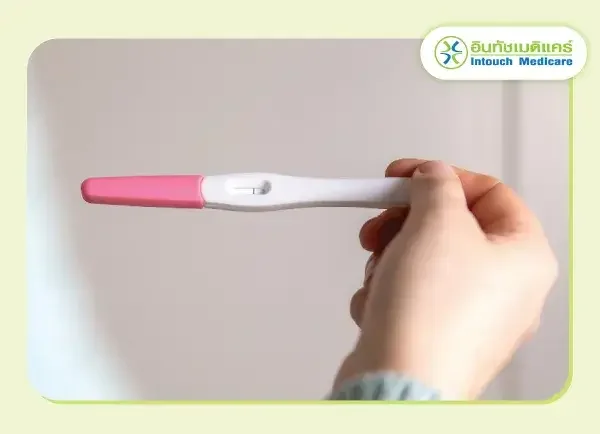The contraceptive implants have many advantages. Whether it is a single hormone or a mixture of hormones, it is considered to be the most effective method of birth control. Depending on the hormone type, it can prevent conception for three or five years. However, women also need to aware of the disadvantages of contraceptive implants. Check out this article for more information.

Pros of contraceptive implants
- Highly effective in birth control
- Fewer side effects compared to other forms of birth control
- Effective for 3-5 years

- Convenient and worry-free
- Easy removal

- Fertility returns as soon as implants are removed
- Fertility returns faster compared to injectable contraceptives
- Reduce menstrual pain and menstrual flow
- No effect on breast milk quality and quantity
- Suitable alternative for those who cannot use birth control pills
- Reduce the risk of serious diseases in women
- No effect on liver function
Highly effective in birth control
Contraceptive implants, both single hormone and combination hormone versions, are considered to be the most effective birth control option available. It has up to 99% birth control efficacy rate. In contrast, there is a 9% chance of failure in situations where birth control pills are forgotten or administered improperly.
Fewer side effects compared to other forms of birth control
Compared to contraceptive injections or pills, contraceptive implants have fewer adverse effects. The majority of women who get contraceptive implants don’t get melasma, nausea, vomiting, or dizziness. These side effects are common when women experience an allergic reaction from contraceptive pills and injections.
read more: What are the side effects of contraceptive implants you should be mindful of?
Return to 12 Pros of contraceptive implants![]()

Effective for 3-5 years
Contraceptive implants can last from three to five years, depending on the type, therefore frequent implant placement is not necessary. While etonogestrel contraceptive implants only work for three years, whereas levonorgestrel implants can last up to five years. The primary factors influencing the type of implant are the patient’s requirements and the doctor’s advice.

Convenient and worry-free
An additional benefit of having contraceptive implants is that it is quick, easy, and safe birth control option. There is no recovery period, and you don’t have to worry about forgetting to take contraceptive pills on time each day or getting injections that need monthly doctor appointments.
Easy removal
Contraceptive implants are not only simple to insert but also simple to remove. All you need is a local anesthetic to remove the implants in order to switch to the next one or to stop using contraception and get pregnant.
Fertility returns as soon as implants are removed
Unlike other birth control methods that may compromise fertility, you can quickly enter fertility mode after removing the implants. Furthermore, there aren’t many requirements for using contraceptive implants. You can see a doctor and get services whenever you’d like if you want to insert or remove contraceptive implants.
![]() You can get contraceptive implant services at all Intouch Medicare Clinics
You can get contraceptive implant services at all Intouch Medicare Clinics

Fertility returns faster compared to injectable contraceptives
Did you know that you can conceive 90% faster with a contraceptive implant than with an injection? This is because the hormones in the contraceptive implant are distributed in very little amounts and do not build up in our bodies. Because the contraceptive implant eliminates the need for waiting, unlike other birth control methods, it appeals to women who wish to become parents immediately
No effect on breast milk quality and quantity
Breastfeeding women can use contraceptive implants because the medications in implants do not affect the amount of milk secretion and the nutrients in breast milk.
Suitable alternative for those who cannot use birth control pills
Some people cannot use contraceptive pills because they contain estrogen, which can affect their body and overall lifestyle. As a result, those who are unable to take estrogen-containing contraceptive pills can benefit from contraceptive implants. However, it depends on the doctor’s advice on which method of birth control to use.
Cons of Contraceptive Implants
Contraceptive implants have drawbacks that women should thoroughly research and weigh before getting this birth control option in order to increase the effectiveness of birth control and lessen the issue of side effects.

Cons of contraceptive implants
- One-time payment
- Fewer brands available
- Fewer medical facilities available
- Few doctors available
- Side effects vary from person to person
- Lack of expertise among doctors who perform contraceptive implant insertion
- Forgetting the removal date

- Contraceptive implants may not be suitable for everyone
One-time payment
One drawback of contraceptive implants is their high cost when compared to other short-term birth control options like pills, injections, IUDs, etc.
Under the National Health Security Scheme, Thai women under the age of 20 are currently eligible for free contraceptive implants; for women after 20, eligibility for free contraceptive implants is contingent upon pregnancy termination.
Read more: What types of birth control are available for teenagers under 20 years old?

Intouch Medicare does not provide free contraceptive implants
The cost of getting contraceptive implants for women over 20 must be paid in full at various pricing points as follows:
- At private clinics or hospitals: 5,000-8,000 Baht/time.
- At public hospitals: 2,500-4,000 Baht/time.
Read more : Prices of contraceptive implant services
Fewer brands available
In Thailand, there aren’t many contraceptive implants available right now. Two well-known brands of contraceptive implants are:
- Implanon implant, 1 implant/time, containing 68 mg Etonogestrel, effective for 3 years.
- Jadelle implant, 2 implantstime, containing 75 mg Levonorgestrel, effective for 5 years.
|
|
Fewer medical facilities available
There are relatively few medical facilities offering contraceptive implant services. In addition, one drawback of contraceptive implants is that the insertion and removal must be performed by physicians or other medical professionals. Access is restricted in many locations due to a shortage of medical facilities offering these services.
![]() Check the medical facilities available here.
Check the medical facilities available here.
Few doctors available

The insertion and removal of contraceptive implants must be performed by a gynecologist (or a specialist physician in the event of a general practitioner).
However, as insertion of a contraceptive implant is regarded as a minor procedure, the majority of interns overlook and have never been trained in this procedure.
“There are comparatively few doctors who specialize in contraceptive implants because some doctors may have little to no experience in insertion of contraceptive implants.”
Side effects vary from person to person
One disadvantage of contraceptive implants is that some people may experience side effects, such as irregular periods (extremely frequent periods, irregular periods, or in some cases, missing periods for several months).
Other potential side effects include bruising, blood spots, scarring on the forearm, wound inflammation in the implant location, and unusual pain in the arm where the implant is put for some people.
Return to Cons of contraceptive implants

Lack of expertise among doctors who perform contraceptive implant insertion
The effectiveness of contraception may be diminished if the doctor who insert the contraceptive implants lacks experience or is not sufficiently skilled. For example, the contraceptive implants could be implanted in the incorrect position or too shallow, which could cause pain and swelling and make the implant wound more susceptible to infection and inflammation. “Improper insertion of contraceptive implants damages nerves and blood vessels.”

Forgetting the removal date
Since contraceptive implants last for three or five years, some people forget to remove them, which may lead to strong adhesion between implants and tissue beneath their forearm. In this situation, surgery is necessary, and removal of the implant would cost two or three times higher.
Contraceptive implants may not be suitable for everyone
It’s true that the majority of women opt for contraceptive implants as their method of birth control in order to avoid unintended pregnancy. However, not everyone is a good candidate for contraceptive implants, particularly if the patient has serious health issues.
-
People who are at risk or have blood clots in their blood vessels, including people with blood clotting disorders and people who take anticoagulants.
-
People with a history of heart disease or cerebrovascular disease
-
People who experience inexplicable vaginal or other organ bleeding.
-
People with liver disease, impaired liver function, hepatitis, liver tumors or cancer.
-
People who are undergoing treatment for chronic diseases and need to take medication to treat the disease, which may reduce the effectiveness of birth control pills, such as medications for AIDS patients, medications for epilepsy, certain types of antibiotics, etc.
-
For some people who experience other health issues after contraceptive implant insertion, such as depression, high blood pressure, headaches or migraines, coronary artery disease, etc, the doctor will recommend removing the implant early.

Due to its high effectiveness, most women opt to use them as a temporary method of contraception to avoid unintended pregnancies. It enables up to five years of pregnancy prevention with the easy insertion procedure.
It’s important to note that contraceptive implants have certain benefits, drawbacks, or restrictions. In order to select the most suitable and safe option of birth control, users should research the specifics on their own or see a medical professional.

For more info and make appointment
Interesting Articles
- What should you be aware of before getting a birth control implant?
- How should you take care of yourself after getting a contraceptive implant?
- Do contraceptive implants pose any health risks due to their side effects?
- Frequently Asked Questions About Contraceptive Implants

Onuma Peanphon ,M.D.
General Practitioner
![]() Latest edit : 29/05/2025
Latest edit : 29/05/2025
![]() Images may be used without prior permission exclusively for educational or informational purposes, as long as proper credit is given to intouchmedicare.com
Images may be used without prior permission exclusively for educational or informational purposes, as long as proper credit is given to intouchmedicare.com


 MM
MM




